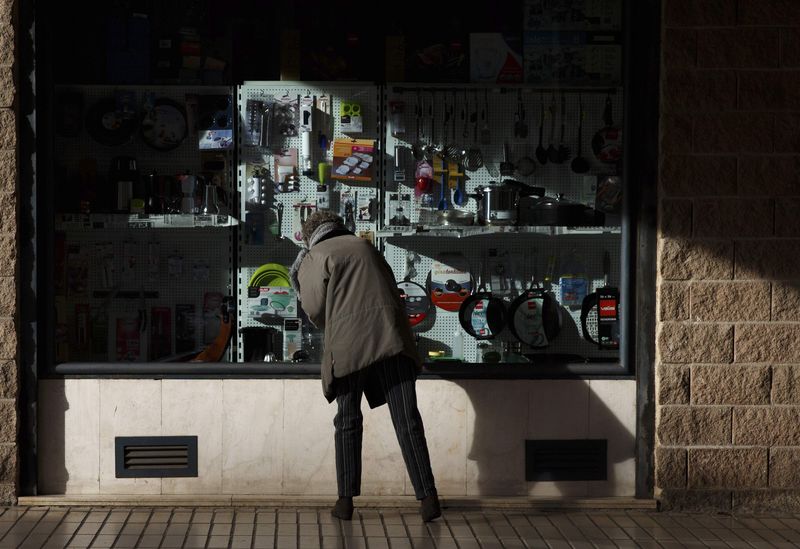MADRID (Reuters) - Spain's economy grew at its fastest pace since before its near seven-year downturn in the fourth quarter of last year, boosted by tumbling energy costs which also prompted the steepest drop in consumer prices since July 2009.
Gross domestic product rose 0.7 percent from October to December on a quarterly basis, according to preliminary data from the National Statistics Institute on Friday, while national consumer prices fell 1.4 percent in January from a year earlier.
Economic output also rose 2.0 percent in the fourth quarter from a year earlier, beating economist expectations.
National consumer prices fell 1.4 percent year-on-year in January, according to the preliminary data, while EU-harmonised prices fell 1.5 percent, in line with expectations and the sharpest drop since records began in 1997.
Spain's economy expanded 1.4 percent in 2014 from a year earlier, the first notable annual growth since 2008 when a burst property bubble destroyed thousands of companies and sent unemployment soaring to above 25 percent.
"The increasingly broad-based recovery suggests Spain is well positioned to take advantage of supportive factors in early 2015, namely lower energy costs, a weaker euro, and a cut in personal and corporate taxes," said Raj Badiani, economist at IHS Global Insight.
"Overall, strong, balanced GDP developments alongside positive survey data suggest the recovery will gain further momentum during 2015."
A sharp drop in oil prices in recent months has helped Spain recover from two crippling recessions, as the net energy importer eyes some 15 billion euros (11 billion pounds) in savings this year on its power bill, according to official estimates.
The government is also betting that the oil effect will feed through to cash-strapped households as it pushes down consumer prices and bolsters spending, further supporting the economy as a general election looms by year-end.
Spain's Economy Minister Luis de Guindos has said that the economy is likely to grow by more than 2.5 percent this year boosted by the effect of cheap oil on consumer spending and a weak euro on exports, a cornerstone to the recovery.
De Guindos has also argued that falling prices was not conducive to a destructive downward spiral as it helped boost families' purchasing power.
